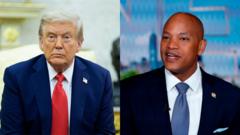A recently proposed ban on wigs, hair extensions, and skin-lightening products at the Grand Théâtre de Dakar, an iconic cultural institution in Senegal, was rescinded just a day after it was announced, triggering a public uproar that reveals ongoing tensions related to cultural identity and gender politics in the country. The ban, introduced by Serigne Fall Guèye—head of the theatre and politically connected to the ruling party—was described as a measure to uphold "Pan-African values" and protect Senegal's cultural image.
However, critics accused Guèye of infringing on women's autonomy under the pretense of cultural pride. The swift reversal of the ban reflects not only immediate backlash from feminist groups but also broader frustrations over gender inequality in Senegal, particularly in light of the current government's scant representation of women—only four out of 25 positions in President Bassirou Diomaye Faye's crisis government are held by women. This situation, alongside the disbandment of the Ministry of Women, has galvanized public discourse around the real implications of such policies.
Social media user reactions were notably negative, labeling the ban as paternalistic and indicative of systemic sexism. Political analyst Fatoumata Ba remarked that the issue transcends cosmetic regulations and speaks to a dominant narrative that seeks to control identity-affiliation, suggesting that it is less about beauty standards and more about power dynamics.
Henriette Niang Kandé, a feminist analyst, raised key questions regarding the rationale behind the ban in a viral post. She posited that the ban undermines personal choice and questioned whether the theatre would similarly restrict men’s grooming habits. Despite a minority supporting the ban as a form of cultural assertion, critics, including sociologist Mame Diarra Thiam, argue for addressing deeper societal injustices such as education and economic equity rather than policing aesthetics.
After intense scrutiny, Guèye stated that the policy was misunderstood and emphasized his intention to align with the theatre's mission more effectively. Nevertheless, the situation reveals the growing discontent among urban youth and progressive civil society, who feel increasingly disillusioned with the government's conservatism following their support in the 2024 elections.
Ultimately, the brief wig ban underscores a striking intersection of identity politics, gender relations, and social justice in Senegal. While the ban has been revoked, the conversation it has ignited continues to resonate deeply within the community, raising questions about authenticity, personal freedom, and the future direction of cultural policies in Senegalese society.




















